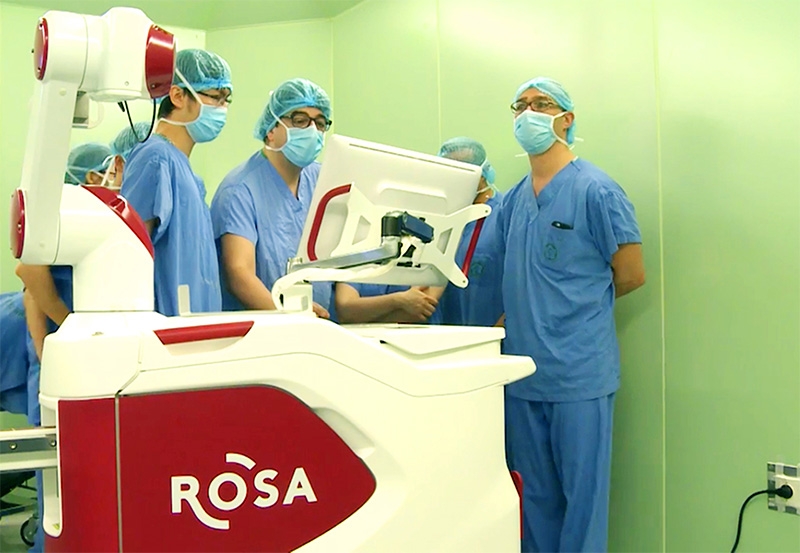Revision needed for equipment policy
 |
| The lack of clear-cut rules is blocking medical equipment manufacturers from making inroads |
According to a VIR source, the expected consistent policies from ministries like the Ministry of Health (MoH) and the Ministry of Finance (MoF), regarding the leasing and installation of medical equipment in public hospitals are yet to be issued.
Torben Minko, chairman of the European Chamber of Commerce in Vietnam’s Medical Devices and Diagnostics Sector Committee (MDDSC), told VIR, “We are still struggling with the current situation. We believe that if we continue dialogues, we will find suitable solutions in the future as we did in the past with other issues that we had.”
“The MoH and its Department of Equipment and Medical Devices are very open to discuss with us any related problems, and the communication over the last couple of months and years has been very good,” he said.
Multinational corporations (MNCs), especially members of the MDDSC, have raised concerns over inconsistent regulations for years. The MDDSC provides a voice for 26 international medical devices and in-vitro diagnostics enterprises active in Vietnam, including Abbott Laboratories, Abbott Vascular, B. Braun, GE Vietnam, and Philips.
Despite the currently outstanding clarifications, there have been some improvements in the legal framework in this field which allowed MNCs to get more freedom in interacting with hospitals. In the past, direct communication seemed to be rather difficult to attain. Nevertheless, the current rules on leasing and installing medical equipment in public healthcare establishments have been problematic because of inconsistencies in the policies from several ministries and institutions, such as the MoH, the MoF and the Vietnam Social Security (VSS).
Accordingly, the VSS does not have a basis to pay for services performed using borrowed or leased machines at public medical establishments. In April 2018, the MoH proposed that the VSS should continue to pay for medical examination and treatment costs, subject to health insurance, of technical services performed using lent or rented machines to ensure the benefits of people entitled to health insurance.
However, the following month, the MoF requested the VSS to work with the MoH on guiding health establishments not to borrow or allow the installation of such equipment, and further inquired the MoH to create guidelines on renting equipment via bidding. In October that year, the MoH and the VSS issued a notice to continue to pay for related medical examination and treatment costs if machines would be used that were lent or installed by companies which have won the bid for chemical supplies until contract termination.
After the termination, if the services are continued, they should follow the guidance of Decree No.151/2017/ND-CP from 2017 elaborating on certain articles of the Law on Management and Use of Public Property. However, Decree 151 has not prescribed the forms of lending or installing machines and does not specifically guide the implementation for some forms of socialisation.
An MoH representative said that it is working with the MoF and the VSS on guidelines for the placement of equipment during the implementation of health insurance packages. “We are jointly amending the current rules on the model of placing medical equipment in public healthcare establishments,” he said.
The mobilisation of private investment into medical devices is a major national policy in Vietnam and aims to create more resources to help hospitals with modern machines to improve examination and treatment processes. Leasing and renting medical equipment at healthcare facilities has some advantages as these solutions reduce the financial burden and enable establishments to still use high-quality medical equipment, thus also bringing about benefits for patients. According to the VSS, about 3,500 machines have been installed in 59 cities and provinces nationwide in various forms of socialisation.
In recent years, the related double-digit growth of the medical devices and diagnostics market, which consists of around 90 per cent of imports, has stimulated MNCs to better serve the market through investments in a solid local network of partners and the setup of representative offices. It has also created opportunities for some MNCs to establish local production facilities.
Currently, members of the MDDSC are dominating the local medical devices market, and expanding further to benefit from the $2 billion market. For instance, B. Braun has some manufacturing sites for medical devices in Vietnam, with 20 per cent of total production assigned for domestic consumption. The company is making constant exchanges with hospitals to directly deliver equipment to them and hopes that these processes will be more convenient once consistent policies are in place.
What the stars mean:
★ Poor ★ ★ Promising ★★★ Good ★★★★ Very good ★★★★★ Exceptional
 Tag:
Tag:
Related Contents
Latest News
More News
- State corporations poised to drive 2026 growth (February 03, 2026 | 13:58)
- Why high-tech talent will define Vietnam’s growth (February 02, 2026 | 10:47)
- FMCG resilience amid varying storms (February 02, 2026 | 10:00)
- Customs reforms strengthen business confidence, support trade growth (February 01, 2026 | 08:20)
- Vietnam and US to launch sixth trade negotiation round (January 30, 2026 | 15:19)
- Digital publishing emerges as key growth driver in Vietnam (January 30, 2026 | 10:59)
- EVN signs key contract for Tri An hydropower expansion (January 30, 2026 | 10:57)
- Vietnam to lead trade growth in ASEAN (January 29, 2026 | 15:08)
- Carlsberg Vietnam delivers Lunar New Year support in central region (January 28, 2026 | 17:19)
- TikTok penalised $35,000 in Vietnam for consumer protection violations (January 28, 2026 | 17:15)






















 Mobile Version
Mobile Version